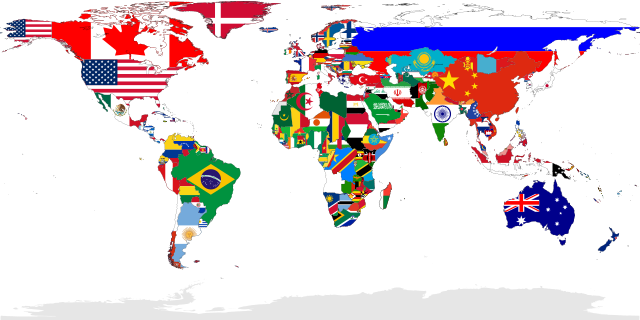
The Rise Of Hybrid Languages
Hybrid Languages Gaining In Popularity
Hybrid languages are not a new concept; they often arise in areas where people feel connected to more than one cultural identity. The use of creoles and pidgins date back to ancient times, arising out of the necessity for two or more cultures to communicate e.g. when trading. They are seen as valid forms of communication, with many forms having roots in colonialism and the blending of European and indigenous languages.
Globalisation And Cultural Fusion
Where multiple languages are present in one place, hybrid languages tend to evolve from the practice of code-switching where a speaker switches between two or more languages within a conversation. The rise in globalisation has meant a rapid increase in the mixing of international cultures and languages.
Spanglish, a mixture of English and Spanish, is the fastest growing hybrid language in the world and is extremely popular in the American Latino community. Both English and Spanish are having a surprising effect on each other, influencing traditional sentence structures and dialects, as seen in the emergence of Miami English.
Modern Influences
The birth of the internet and rapid rise in technology has also played a significant part in language exchange and hybrid language use. With the ease of connection of online platforms, different cultures can communicate on a larger scale, facilitating language evolution at a much faster rate.
Hybrid languages are particularly popular in younger generations and music and the media play an important role. Global pop culture often mixes languages, such as Korean pop (K-pop), to appeal to larger audiences. In India, many of the younger generations such as Gen Z and Y use a mixture of Hindi or Tamil and English which is becoming increasingly mainstream. Many businesses are capitalising on this, especially in the media and entertainment industries, where cinema releases are often shown in hybrid languages.
Perceived Threats
Hybrid languages serve as linguistic markers of identity that represent a blend of cultures but they also present a number of challenges to linguistic diversity and cultural preservation. Hybrid languages can cause social division, marginalisation or be seen to undermine national identity. Dominant and minor language mixing can lead to indigenous language dilution or even extinction, leading to a loss of cultural heritage. The delicate act of balancing the advantages of hybrid languages with language protection is an ongoing challenge that can be seen in government laws by countries such as France and Spain to help protect cultural identity.
If you are are interested in studying French, German or Spanish, Oxford Open Learning offer the chance to do so at several levels, listed below. You can also Contact Us.